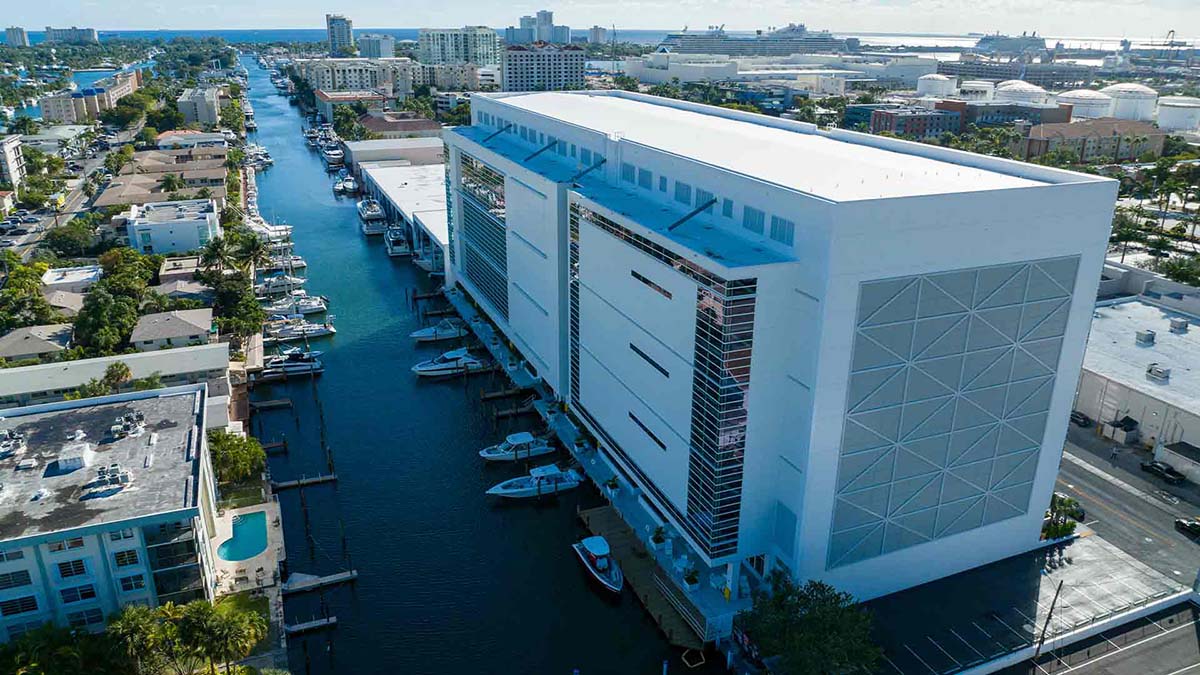
Marina Market Holds Steady Amid Uncertain Times
Published on June 27, 2025Market swings and economic uncertainty are regular features of today’s news, but despite the turbulent waters, the marina market continues to be a safe space for real estate transactions. While the rush of buying and selling that sparked during and right after the pandemic has subsided, marinas remain a favored purchase.
An Active First Quarter
“There was a period last year where sales were a bit quieter, but this year we’re finding all these investors who want to be in the marina space. They’ve accepted that rates won’t go down,” said Dan Grovatt, senior vice president with the leisure and marina practice at Colliers Leisure Properties. “Where we were red hot in 2022, we’re now at a more normal cadence of sales, but we’ve been very active this first quarter.”
Grovatt has seen some wild market swings in his relatively short time in the marina brokerage business. He came into the industry in 2015 after an injury ended his short outfielder career with the Pittsburgh Pirates. He was recruited into a partnership with two others who saw the potential growth in the marina market as larger investment firms began to take a greater interest in marinas.
“Most commercial brokers get into the business on the industrial or apartment end, but we started something new,” Grovatt said. “We weren’t sure of our success but knew we’d be in on the ground floor if it went well.”
That risk paid off. The low rates and easy capital that were the norm over the past few years brought more private equity and capital groups into the marina investment space. The investors have not left despite rising rates and a more challenging lending landscape.
“As rates rose, at first there was a big disconnect between sellers who wanted to hold to their price and buyers who were unable to accept that price because of the added loan rates,” Grovatt said. “Now, we see the buyer and seller are more aligned on what needs to happen to get a deal done.”
Similarly, with news of large investment companies like Blackstone and Bain Capital entering the marina industry through deals with Safe Harbor Marinas and Bluewater Marinas, respectively, others have been encouraged that marinas are a worthy investment.
A Variety of Transactions
The market is also seeing more excitement around high-quality, premium-priced properties like F3’s fully automated dry stack facility in Fort Lauderdale, Florida, that Colliers added to its portfolio. The unique facility has attracted much interest both internationally and nationally, and Grovatt said bids have rolled in. “High-end facilities like this don’t transact often, like maybe every 50 years, and there’s a high barrier to purchasing, but the sale brings lots of attention and interest to the industry,” he said.
Grovatt has seen more corporate groups entering the market, but said, despite the perception, sales of mom-and-pop marinas to individual buyers are still the bulk of transactions. “A lot of people think of the marina space in terms of Blackstone, that it’s out of scope for Joe Boater. But that’s such a small part of the industry,” Grovatt said. “People need to be a bit more willing to look beyond the multi-million-dollar facilities that make the news. There is a whole industry operating on coasts, lakes and rivers in every state. If you spend the time digging past the surface, you’ll find a lot of opportunities.”
He encourages those interested in owning a marina to figure out where they can add value to a facility. He recently sold a marina in New Jersey to an individual investor who had a lot of handyman skills and knew he could make long-overdue repairs and improve the marina to attract more boaters.
Investment Advice
For smaller investors, he recommends a deep exploration of lending options to see what is possible. He cautions that finding comparative information on marinas is one of the biggest challenges to the market. Unlike traditional commercial real estate that has plenty of statistical data available, there isn’t much compiled information on marinas. “When a marina sale occurs, there’s real estate and business value but so often the public record only shows the real estate figures and leaves out so much. The comp information out there is not reflective at all of the true market.

His team at Colliers has gathered some data through their appraisal division and with that and their sales experience, they can assist potential buyers in creating a business plan that can be given to a lender. “Buyers should also talk to the marina owner to find income streams and potential,” Grovatt said.
“Sellers will often help any way they can because they’re anxious for a sale but also want to see the marina go to someone who can keep it going.” He further suggested that state marine trades associations can be helpful for gathering data and information as well.
For marinas interested in selling and unsure how sales are handled when large investors come in from all over the world, Grovatt’s team advises them on the best strategies to work within that space to show their value. “When we first started there weren’t that many buying groups. Now it’s more important than ever to make sure you’re running a good sales process,” Grovatt said. “There is more competition, and you must make sure buying groups are aware of your full deal.”
While the economy continues to be in a state of flux, and real estate transactions make a crawl towards recovery, the marina market may be one of the few bright spots and safe bets.
| Categories | |
| Tags |






